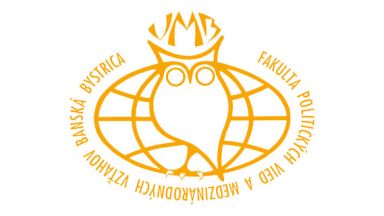Zahraničná politika Spojených štátov amerických voči Tunisku v kontexte výziev arabskej jari
THE FOREIGN POLICY OF THE UNITED STATES TOWARDS TUNISIA IN THE CONTEXT OF CHALLENGES POSED BY THE ARAB SPRING
Katarzyna Czornik
***
Politické vedy, Volume 20, Number 2/2017, pages 91-115
Odporúčaná forma citácie článku / Recommended form for quotation of the article:
CZORNIK, K. 2017. The Foreign Policy of the United States towards Tunisia in the Context of Challenges Posed By the Arab Spring. In Politické vedy. [online]. Roč. 20, č. 2, 2017. ISSN 1335–2741, s. 91-115.Dostupné na internete: <http://www.politickevedy.fpvmv.umb.sk/archiv-vydani/2017/2-2017/katarzyna-czornik.html>.
ABSTRACT
The Arab Spring, ignited by the act of self-immolation of a street vendor from Tunisia, was an unprecedented event in the Middle East and North Africa region. On the one hand, it brought hope of political change and pro-democratic movement in the Maghreb and Mashreq region. On the other hand, there were concerns whether the situation in that part of the world would be peaceful after the social rebellion ended and the power of some long-term dictators was taken away. The main aim of the article is to study how the Arab Spring influenced the nature and evolution of the relations between Tunisia and the U.S. with a particular focus on the U.S. position on the internal changes that took place in Tunisia after the Arab Spring. The Arab Spring, despite its ideas of freedom, liberalisation of political systems and democratisation of the Middle East and North Africa, seemed to be a concern for the U.S. administration that would have to face the dilemma it had tried to avoid for decades: whether to support the pro-democracy movements and people who want to overthrow the dictatorships in the name of democracy(?), or to support the old authoritarian regimes and, hence, contradict own ideas in the name of self-interest, thus maintaining the status quo and – to some extent – the secularism in the Middle East and North Africa region. Therefore, in hindsight, Tunisia seems to be a special case among the Arab Spring uprisings. On the one hand, the Arab Spring in Tunisia implied the overthrowing of the long-time dictator Ben Ali and temporarily strengthening of the fundamentalist forces. On the other hand, it made Tunisia serve as an example of a country where the desired changes took place without a bloody civil war and destabilisation, as was the case in other countries in the Middle East region under the influence of the Arab Spring.
Key words: Arab Spring, USA, Tunisia, terrorism, ISIS
Súbory na stiahnutie
| Názov | Veľkosť | Formát | Dátum | Zoradiť podľa: |
|---|---|---|---|---|
| Zahraničná politika Spojených štátov amerických voči Tunisku v kontexte výziev arabskej jari | Veľkosť: 465.1 kB | Formát: pdf | Dátum: 4.1.2024 |





